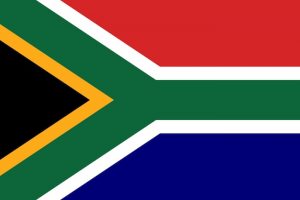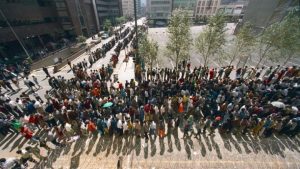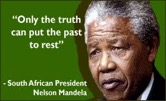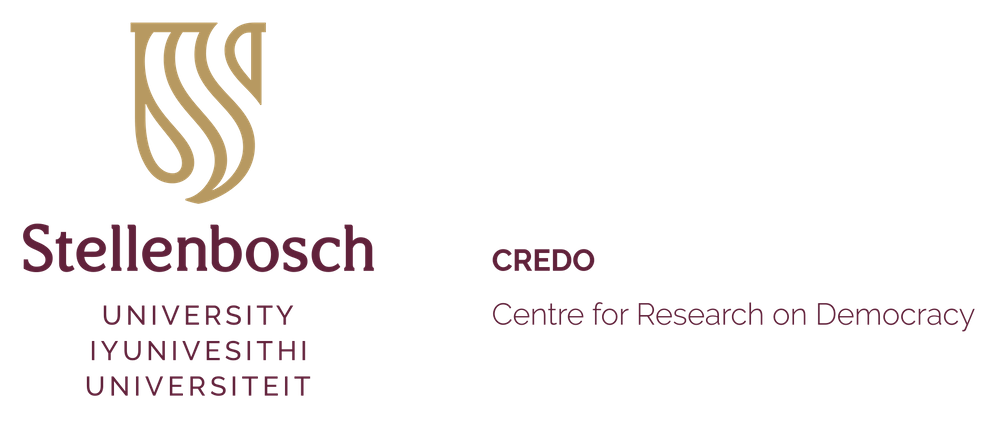The road to democracy in South Africa
Part 1: Introduction
The road to democracy in South Africa
2 February 1990
President FW de Klerk announced the release from prison of Nelson Mandela and the unbanning of the African National Congress (ANC), Pan Africanist Congress (PAC), the South African Communist Party (SACP) and other liberation movements.
21 December 1991
CODESA 1
The negotiations, known as the Convention for a Democratic South Africa (CODESA), first convened on that day at the World Trade Centre in Johannesburg. Over 220 delegates from nineteen political parties attended and vowed their commitment to negotiations by signing the “Declaration of Intent”, pledging among others:
- To bring about an undivided South Africa with one nation sharing a common citizenship, patriotism and loyalty, united in diversity, freedom, equality and security for all irrespective of race, colour, sex or creed; a country free from apartheid or any other form of discrimination or domination
- To work to heal the divisions of the past
- To strive to improve the quality of life of all people through policies that will promote economic growth and human development
- To set in motion the process of drawing up and establishing a constitution that would, among others:
- Ensure a united, democratic, non-racial and non-sexist state in which sovereign authority is exercised over the whole of its territory
- Become the supreme law and that it will be guarded over by an independent, non-racial and impartial judiciary
- Assure that all shall enjoy universally accepted human rights, freedoms and civil liberties including freedom of religion, speech and assembly protected by an entrenched and justiciable Bill of Rights and a legal system that guarantees equality of all before the law.
15 May 1992
CODESA 2
President FW de Klerk delayed the second round of negotiations by calling for a whites-only referendum to seek support from this constituency for the continuation of negotiations. The majority of whites voted in favour. CODESA 2 began, but the negotiations soon broke down due to disagreements over the key issues of power sharing and majority rule, as well as the eruption of violence, which had claimed many lives.
Behind-the-scenes talks between the chief negotiators – a cabinet minister in the National Party (NP), Roelf Meyer, and the ANC’s Cyril Ramaphosa – managed to get negotiations back on track. The resultant Multiparty Negotiating Forum (MPNF) on April 1, 1993 paved the way towards the demise of apartheid.
5 March 1994

By the end of 1993, none of the numerous designs for the new flag found support with the public or the Negotiating Council. In February 1994, Cyril Ramaphosa and Roelf Meyer, were given the task of resolving the flag issue, and were successful. The flag was hoisted officially for the first time on the 27 April 1994, the day when the nation’s first fully inclusive elections commenced.
27 April 1994
The first democratic election was won by the ANC with Nelson Mandela becoming the first democratically elected president of the republic. Although the ANC had gained a majority vote, the party formed the Government of National Unity, in which FD De Klerk and the ANC’s Thabo Mbeki became deputy presidents.

The hard won election was the crowning of the long and bitter struggle for liberation. The election has changed the history of South Africa, paving the way towards a new democratic dispensation and a new constitution for the country. For the first time in the history of South Africa, people of all races stood together in long snaking queues at the polls to vote for a government of their choice. Nineteen political parties had participated and twenty-two million people had voted. Contrary to widespread fears of political violence, the election was peaceful and took place in a festive atmosphere.
The ANC won the election with 62.65% of the vote. The National Party (NP) received 20.39%, the Zulu based Inkatha Freedom Party (IFP) 10.54%, Freedom Front (FF) 2.2%, Democratic Party (DP) 1.7%, Pan Africanist Congress (PAC) 1.2% and the African Christian Democratic Party 0.5%.
27 April 1994
The Truth and Reconciliation Commission (TRC)

The Government of National Unity had set up the TRC to help deal with the apartheid past. Under apartheid human rights abuses were rife on all sides, and no section of society escaped these abuses. The TRC was established in the belief that “only the truth can put the past to rest” (Nelson Mandela).

The TRC came into being under the auspices of the Promotion of National Unity and Reconciliation Act, No. 34 of 1995. The hearings, which started in 1996, were held to record the abuses, to grant amnesty to the perpetrators of human rights violations in some cases, and to offer reparation and rehabilitation to the victims. The TRC was headed by Archbishop Desmond Tutu (Chairman), and Alex Boraine (deputy Chairman).
25 May 2019
The link
The history of South Africa seems to have come a full circle on 25 May 2019, when President Cyril Ramaphosa has delivered his inauguration speech, promising the jubilant South Africans a ‘New Dawn’ after the ruinous years of the rule by Jacob Zuma.

Cyril Ramaphosa has played a pivotal role as head of the ANC delegation, which negotiated the end of apartheid with the apartheid government. He has gained respect as the co-convener of the internationally acclaimed South African Constitution, and along with his NP counterpart, Roelf Meyer, became a symbol for reconciliation and collaboration for the common good of all South Africans.
29 May 2024
The Government of National Unity
After 30 years in power the African national Congress, ANC, has lost its majority rule in the most highly contested elections since the end of apartheid. Having accepted the results of the polls, the party signed an agreement to form a Government of National Unity, GNU, with the Democratic Alliance, DA, Inkatha Freedom Party, IFP, and a number of smaller political parties. The first sitting of the seventh Parliament took place on 14 June 2024. President Cyryl Ramaphosa was newly sworn-in during an inauguration ceremony on 19 June 2024. Following vigorous negotiations on 30 June 2024 the President announced the composition of the National Executive.

